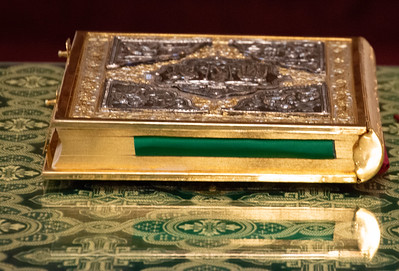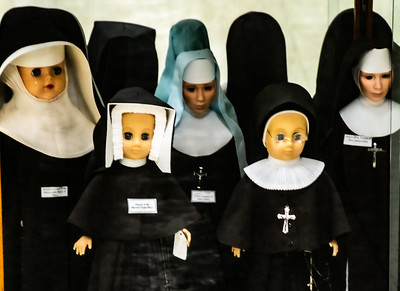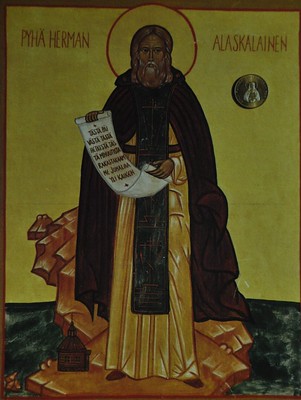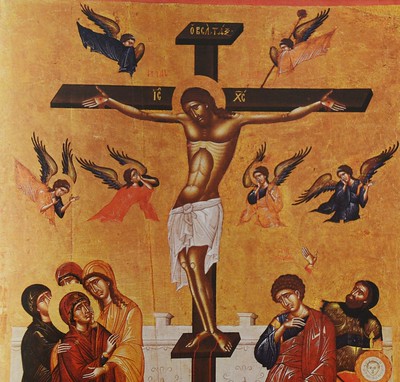“Let us pray neither for show nor against our enemies, and let us not be arrogant to think that we can teach Him [God] the method of assistance. . . . Did you tell Him your injury? Did you tell Him everything you suffered? Do not tell Him these and how to help you, because He realizes exactly your best interest. However, there are many who, in prayer, recite thousands of verses, saying: ‘Lord, grant me physical health, double all my possessions, repel my enemy from me.’ This is completely absurd.
 We must dismiss all these things and pray and supplicate only as did the publican, who repeatedly said: ‘God be merciful unto me a sinner.’ Afterwards, He knows how to help you. For He says, ‘Seek first the Kingdom of God, and all these things shall be added unto you.‘ Therefore, in this way, my brethren, let us pursue wisdom with toil and humility, beating our breasts like the publican, and we will succeed in getting whatever we ask for; but when we pray filled with anger and wrath, we are hated by God and are found to be an abomination before Him.
We must dismiss all these things and pray and supplicate only as did the publican, who repeatedly said: ‘God be merciful unto me a sinner.’ Afterwards, He knows how to help you. For He says, ‘Seek first the Kingdom of God, and all these things shall be added unto you.‘ Therefore, in this way, my brethren, let us pursue wisdom with toil and humility, beating our breasts like the publican, and we will succeed in getting whatever we ask for; but when we pray filled with anger and wrath, we are hated by God and are found to be an abomination before Him.
Let us crush our thought, humble our souls, and pray for ourselves as well as for those who have hurt us. For when you want to persuade the Judge to help your soul and take your part, never pit Him against the one who grieved you. For such is the character of the Judge, that, above all, He sanctions and grants the requests of those who pray for their enemies, who do not bear malice, who do not rise up against their enemies. As long as they remain unrepentant, however, God fights them all the more.” (St John Chrysostom, ON REPENTANCE AND ALMSGIVING, pp 52-53)
A Prayer attributed to St. Philaret, Metropolitan of Moscow, is written in the spirit of St John Chrysostom’s comments on prayer above:
My Lord, I know not what I should ask of You. You alone know my true needs. You love me more than I am able to love. O Father, grant to me, Your servant, all which I cannot ask. For a cross I dare not ask, nor for consolation; I dare only to stand in Your presence. My heart is open to You. You see my needs of which I am unaware.
Behold and lift me up! In Your presence I stand, awed and silenced by Your will and Your judgments, into which my mind cannot penetrate. To You I offer myself as a sacrifice. I have no other desire than to fulfill Your will. Teach me how to pray. Pray Yourself within me. Amen.






















